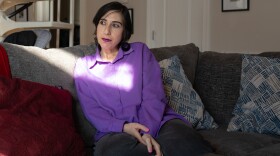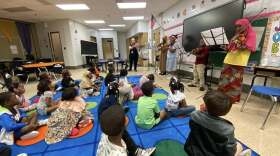High school students from Brazil are visiting Louisville this week as part of the Brazil Youth Ambassadors, a program under the U.S. State Department, where students learn about concepts around social justice.
I visited the 13 students at the World Affairs Council in the Portland neighborhood where they learned about implicit bias. They each took the Implicit Association Test — it measures concepts and stereotypes a person may be unaware that they have about a group of people. The online exam allows you to test your biases concerning sexuality, skin tone, gender, religion and race.
Seventeen-year-old Teylon Lima said he's seen implicit bias first-hand in the classroom back home.
“Some of the teachers have a prejudice about people,” he said.
Lima said he has a friend who’s openly gay and his teachers treat his friend unfairly, including not answering his questions and calling him a class clown.
Monica Lakhwani is multicultural specialist with Jefferson County Public Schools. She facilitated the lesson. Lakhwani said the type of treatment that Lima described can have long-term effects.
“Implicit bias in an unconscious bias," she said. Lakhwani said many times people are not aware of their prejudice.
“But it’s the little things that are said and one, on a daily basis, that can become microaggressions and can become a part of someone’s life that can impact them negatively,” she said.
While in Louisville, the students are also getting lessons in project planning, volunteerism, youth rights, LGBTQ issues and leadership. The students will take what they learn in Louisville and apply it to a social justice project they are working on in Brazil.
For Lima's project, he's volunteering as an English teacher for underprivileged children. He said learning about implicit bias will also help his career goals.
“I want to be an English teacher,” said Lima. “I will not just teach grammar. I want to teach a lot of different things that I’m learning here.”






